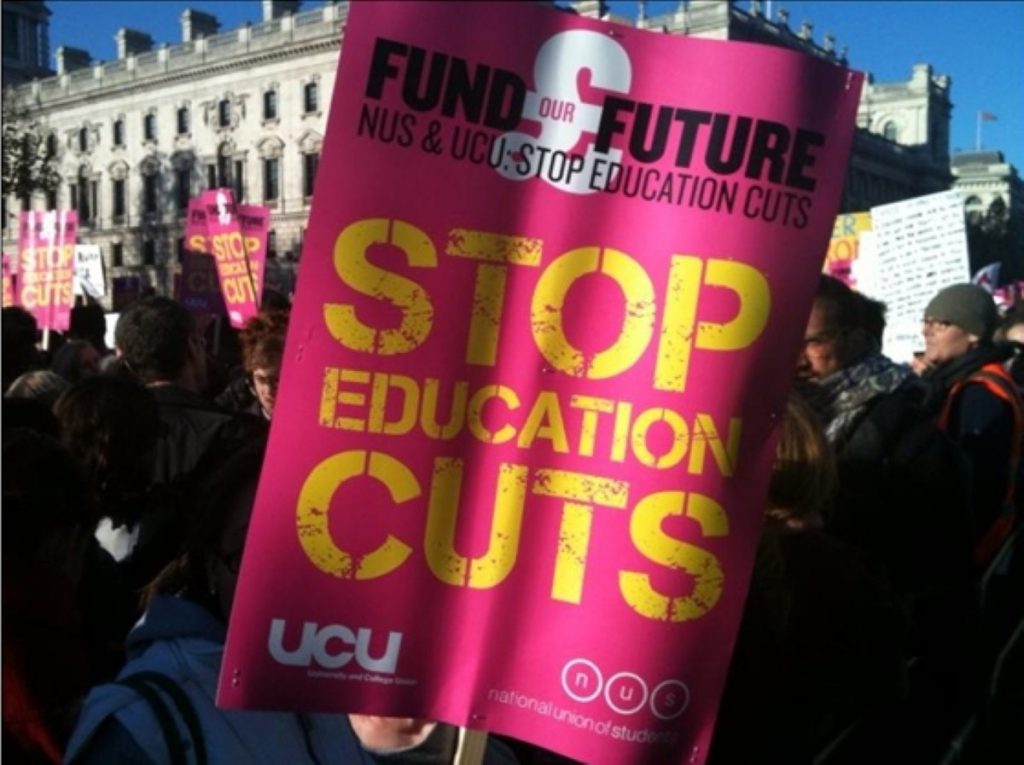Students and unions unite for Manchester and London protests
By politics.co.uk staff
Students and trade unions are voicing their anger with the coalition government’s spending cuts with protests in London and Manchester.
Today’s demonstrations were the biggest gathering of students since riot police were deployed in central London in early December, when MPs voted through ministers’ tuition fee plans.
Both events passed off generally peacefully, although six people were arrested in Manchester.


In London, many demonstrators broke away to join protests outside the Egyptian embasy in solidarity with demonstrators in Cairo, Alexandria and Ismailiya.
University and College Union (UCU) general secretary Sally Hunt told protestors at the Manchester demo that the government is betraying an entire generation of young people.
“From sacking lollipop ladies and closing youth clubs to axing college grants and trebling tuition fees this is a government at war with our young people and therefore at war with our future. It is betraying an entire generation,” Ms Hunt said.
“Our young people deserve better. They have every right to feel cynical and let down.
“They have been failed again and again by politicians who promised before the election to vote against a rise in fees and to keep college grants. It is not right that the next generation is being asked to pay the price for a financial crisis they didn’t create.”
In London, the National Campaign Against Fees And Cuts spearheaded a march through the centre of the city from Russell Square.
Parliament Square was passed en route to Millbank, the scene of the Conservative party’s headquarters whose reception was destroyed by rioters.
The day of action marks a significant widening of the protest movement, with student groups and trade unionists working together to oppose the government’s economic agenda.
The strength of the opposition to tuition fees took many trade union leaders by suprise and led to calls for a more coordinated policy between the two groups.












